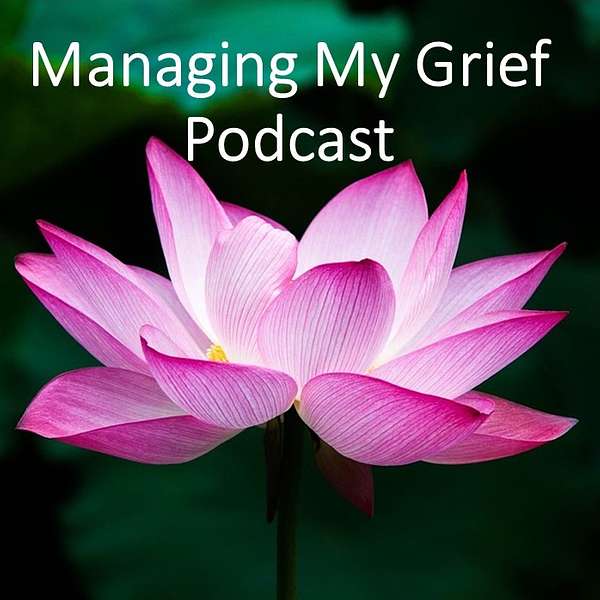
Managing My Grief
Managing My Grief
MMG1: Defining Grief, Mourning, & Bereavement
Transcript:
When one experience loss, they are essentially, deprived of something or someone. Although someone appears to be functioning magnificently in society, in reality, within the confines of their home, they could be mourning.
That’s an excerpt from the show. Today, we’ll be discussing Defining Grief, Mourning, and Bereavement. And, here’s the intro.
Intro
I’m glad you chose to join me for my first Managing My Grief Podcast Show. This discussion is on Defining Grief, Mourning, and Bereavement.
Many times we hear someone use the terms grief, mourn, and bereavement interchangeably, but do you really know what they mean? Grief, according to Webster’s Dictionary, is a “deep and poignant distress caused by or as if by bereavement.”
While mourning’s definition is, “to feel or express grief or sorrow; to show the customary signs of grief for a death”
They may sound similar, but they are quite different. Grief can be viewed as the internal reaction after experiencing loss, such as anger, sadness, or hurt.
And mourning is the outward expression of grief. For example, a child loses their parent. Inwardly, they may experience confusion and anger, that’s grief. Outwardly they may cry, or become more aggressive towards peers, and that is mourning.
At times you may hear people say, “They’re still mourning,” or recently someone shared with me that they haven’t mourned their father’s death yet because they have to focus on supporting their family. In a future show we’ll talk about the different reasons why someone may not mourn immediately after a loss.
For now, I’m going to share a story with you so see if you can identify the grief and mourning. Again, grief is internal reaction and mourning is the outward expression. Keep in mind that sometimes, mourning isn’t obvious.
Chris is a 22 year old who recently lost his mother. He continues attending classes and maintaining good grades in college. Chris continues spending time with his friend, and seems to be functioning as well as when his mother was still living. Several weeks pass, a few of his friends notice that when they go out to eat, he doesn’t eat as much, sometimes, doesn’t eat at all. His friend’s jokingly confront him and he jokes back saying, “I’m trying to lose weight.” As finals draw near, he dives more into studying and passes all of his classes. At graduation, distant relatives notice Chris’ loss in weight and make a few comments on how handsome he looks. Throughout the graduation celebration, family members tell him how proud his mom would be if she were here. He oddly looks down, says thanking, and moves away to talk with other people.
Were you able to pick up on the grief and mourning Chris was experiencing? The grief Chris experienced was depression. There’s a difference between sadness and depression. The initial difference is the length. Sadness typically lasts no more than 2 weeks, but if someone experiences sadness consistently for 2 or more weeks, then that experience can be classified as depression. The depression Chris was experiencing was being manifested by losing his appetite and not eating as much. His method of mourning was not eating. Now that’s not to say that he deliberately chose to lose his appetite. Losing his appetite was how the grief chose to manifest itself outwardly. Everyone experiences grief differently resulting in them mourning differently, and that’s okay, that’s what make’s us unique.
On to bereavement. Bereavement is another term we may hear someone use. “Oh, they are in bereavement,” or related to work, someone may say “they’re gone for bereavement.” Here in the U.S. most jobs provide a 3 day Bereavement Period for people to “deal with the death of a family member.” Which by the way, 3 days isn’t long enough to “deal” with loss, but that’s another discussion. There are some empl